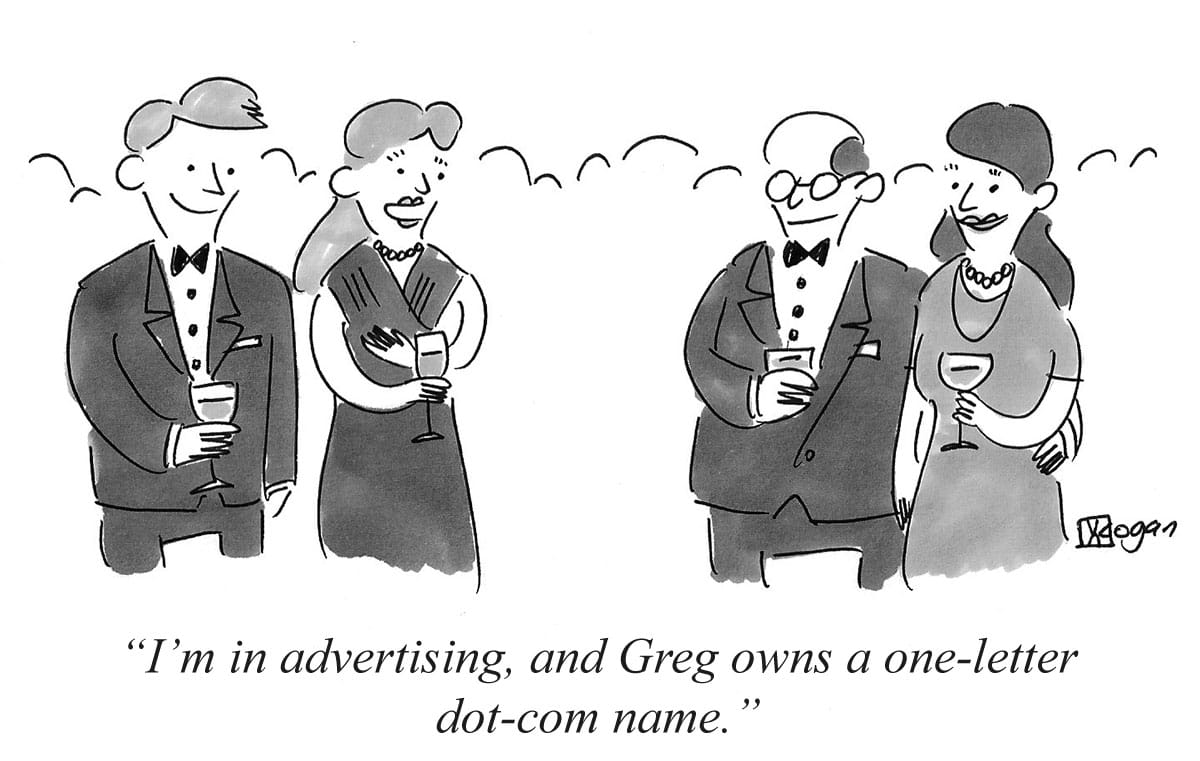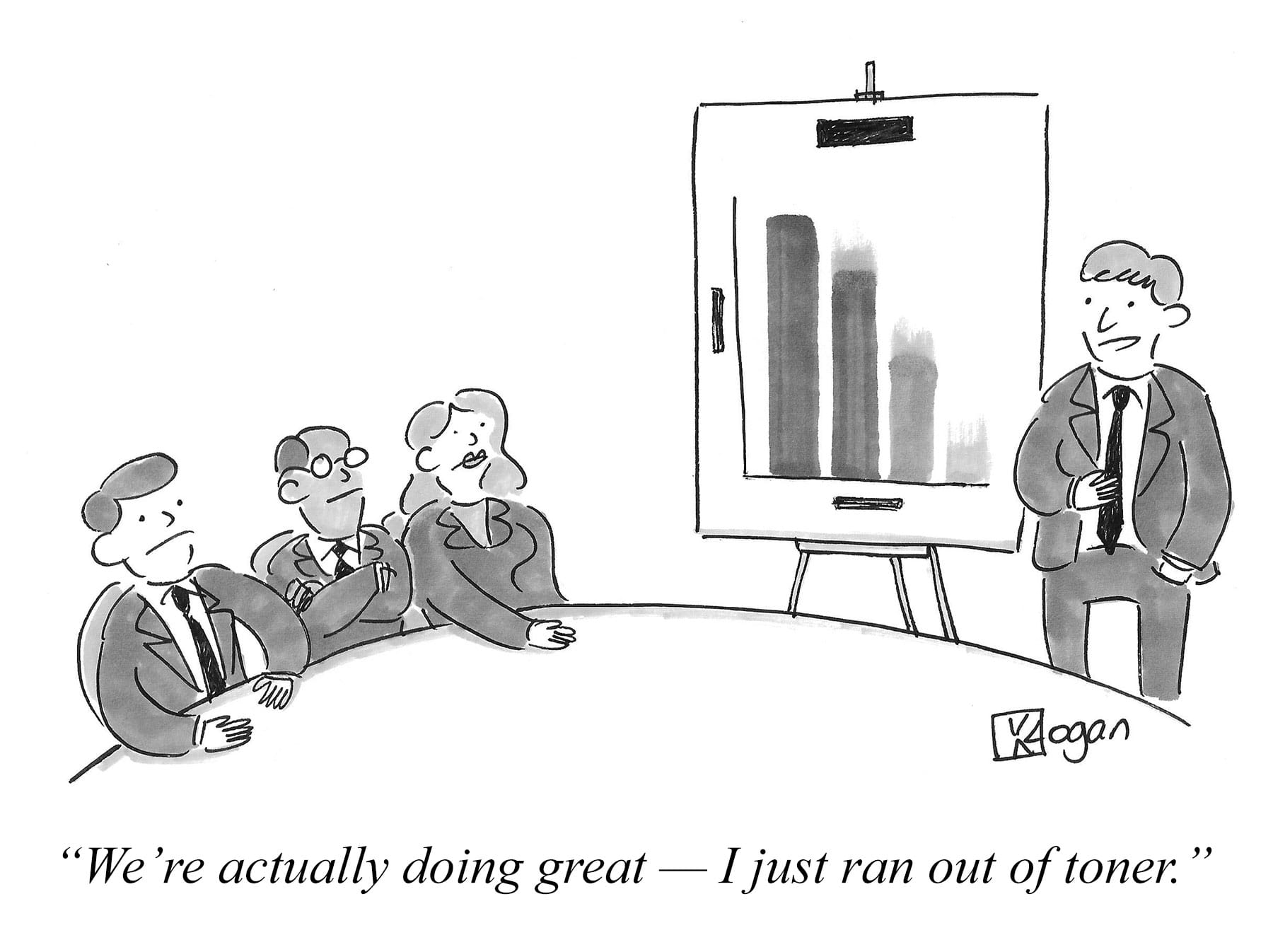Reject the First Ideas
I used to draw and sell single-panel cartoons to magazines. From the years I did this, I learned to reject the first ideas that came to mind during a writing session, because they’re too obvious and shallow. The gems—those that got published by the likes of Wall Street Journal and Harvard Business Review—surfaced deep into a session.

I took that lesson with me into growth consulting. When I’m starting a new engagement and planning activities, I reject the first ideas. Not because they’re unfunny, but because the first ideas of new hires and contractors are motivated by natural urges to:
- Make a splash; to do something that gives the impression of progress, such as rebranding, redesigning the website, and toying with tools.
- Pick the low-hanging fruit; something that can be completed quickly.
- Appear agreeable and likeable; treat everything the CEO says as fact or direction, without questions.
New hires and contractors are drawn to the path of least resistance and most visibility, because they’re eager to show progress.
First ideas are bad because their motivations—easy to do, easy to see—don’t correlate with growth.
First ideas are dangerous because they give a false sense of progress; there are meetings with designers, sketches sent for review, blog posts being queued up at a dizzying pace. Especially for B2B companies with longer sales cycles, it could be months before it’s clear all that work had little effect on growth.

I watched a company hire a head of marketing whose first ideas were to redo the logo, overhaul the website, fire up social media accounts, and other easy-to-do and easy-to-see activities far removed from actual growth.
Months later it became clear that, despite the flurry of activity, nothing of substance was happening. The company cut their losses and learned a lesson: Don’t let people take the path of least resistance and most visibility, and don’t hire those who insist on it.
Instead, challenge your team to:
- Think past first ideas
- Value truth over agreeableness
- Align activities with company’s goals
- Pursue long-term value over short-term wins
Rejecting first ideas isn’t the most obvious or easiest path, but it’s the one that’ll take you farther.





